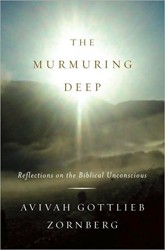Rav Kook’s unedited and unpublished diaries were printed early in the new millennium, and this raw material originated a new wave of scholarship on the rabbi, focused less on his national and spiritual outlook and more on his personality. Dov Schwartz, a leading scholar of religious Zionist ideology, examines in this new manuscript how Rav Kook perceived himself, and the results are surprising.
In his lifetime, Rav Kook was not a supporter of the religious Zionist Mizrahi movement, and on the ideological level he was more leaning toward the ultra-Orthodox Agudat Yisrael. Eventually he established his own political movement, Degel Yerushalim instead of joining any of the preexisting associations. It seems that Rav Kook was a category that stood by itself. In his secret diaries he portrayed himself as the perfect individual, which by his self-image was a complete duplication of himself. In his mind, he was a genius, a tzaddik (righteous man), a prophet, and a potential Messiah.
Among the ideas from Schopenhauer, Schelling, and Nittzsche evident in the rabbi’s writings, Schwartz shows the immense influence of Hasidic thought on Rav Kook. His role model of the perfect man was based upon the Hasidic model of the tzaddik. According to Rav Kook, the genius is an individual who approaches human perfection, figure is so holy that even the laws of Torah don’t apply to him. He needs to master Kabbalah, be a poet, and absorb secular philosophy. This righteous individual can remove the influence of heresy by the force of his personality. In Rav Kook’s eyes the time in which he lived was messianic, therefore he saw the tzaddik (and himself) as one whose role it is to descend into evil in order extract sanctity from within.
Thus explains Rav Kook’s public support for the secular pioneers: he thought he could correct them back into observance, due to his unique personality. His failure to reform these pioneers forced him to shift into a spiritual interpretation for the role of the coming Messiah, transferring “the saint’s political and messianic drama to the inner realm.”
The Religious Genius in Rabbi Kook’s Thought is an original and well-researched examination into Rabbi Kook’s personality and self-image. Written in the professional jargon aimed for scholars and educated layreaders, the theories within are provocative and cutting-edge.
Related Content:
- Kathy Ebel: Nice Jewish Girls Finish Whole
- Rabbi Shmuly Yanklowitz: Is There a Prayer for Activists?
- Rav Kook: Mystic in a Time of Revolution by Yehudah Mirsky
Motti Inbari is an associate professor of religion at the University of North Carolina at Pembroke. He is the author of three books on Jewish Orthodoxy. His latest is Jewish Radical Ultra-Orthodoxy Confronts Modernity, Zionism and Women’s Equality.





